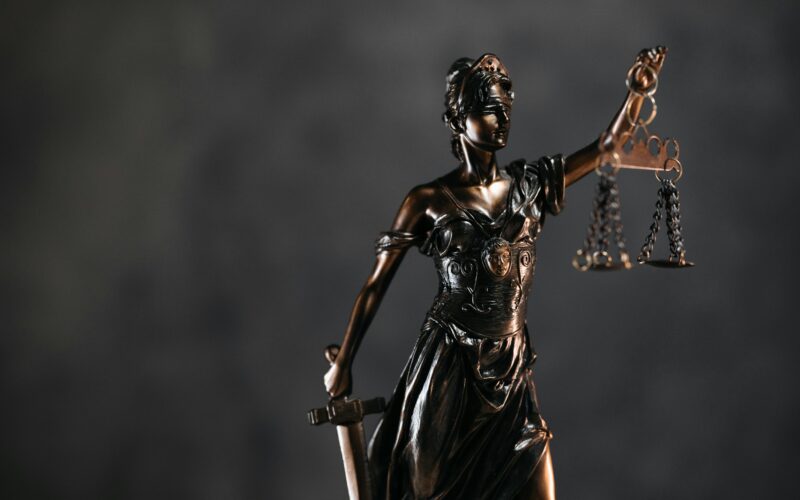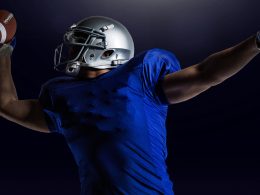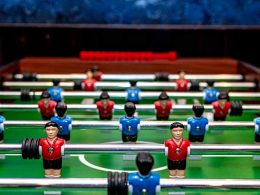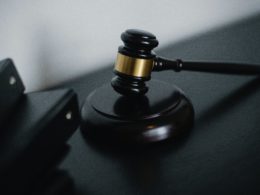The Fourth Annual Brooklyn Entertainment and Sports Law Society Sports Law Symposium was held on Friday, October 25, 2024. The third panel of the afternoon, “Vaulting Onto the Billboards: Official Sponsors and Athletes Marketing Rights,” featured a myriad of conversations ranging from the anatomy of a sports contract to protecting influencers during deals.
THE MODERATOR AND PANELISTS:
Our moderator was Dan Lust, counsel at Moritt Hock & Hamroff LLP and an adjunct professor at both New York Law School and Pace Law School. Mr. Lust works in transactional and litigation arenas, focusing on sports and entertainment law. He works with athletes, agents, and entertainers on complex commercial transactions. He has also spoken on many platforms, including ESPN, Fox Sports, and USA Today. Additionally, he is the co-author of the “College Sports Law in a Nutshell” series.
For panelists, we had Adam Dale, who counsels and represents a variety of sports industry clients, including Klutch Sports Group, MVP Sports Group, North American Soccer League (NASL), Relevant Sports, WME | IMG (Endeavor), Major League Baseball Players Association, NBA Players Association, NFL Players Association, OneTeam Partners, U.S. National Sled (Paralympic) Hockey Team, several individual professional athletes, and multiple eSports Leagues and Teams. Mr. Dale was also a vital member of the Alston v. NCAAtrial and appellate team that secured a landmark 9-0 victory in the Supreme Court, striking down scores of NCAA rules that limited the education-related compensation and benefits that universities may provide to both FBS football and Division I Men’s and Women’s basketball players.
Andrew Latack is head of Legal at Klutch Sports Group. At Klutch, Mr Latack oversees all legal work for Klutch’s clients, which include some of the world’s top athletes and brands. He has worked in the athlete representation business for over a decade, managing the careers of some of the world’s most prominent and successful sports talent. Before attending law school, he wrote for ESPN The Magazine.
Merissa Pico is Senior Counsel for MLS NEXT Pro, Major League Soccer’s professional development league. As Senior Counsel, Merissa handles all legal matters related to the league, including commercial operations and sponsorships, league governance, media and technology, player policies, and league expansion.
THE PANEL:
Our panelists began the conversation by offering differentiation between what could be seen as the “easy things” in contracts, including compensations and services sections. Mr. Latack described the more “minor” sections that every good attorney needs to pay attention to – category exclusivity, compensation reduction, limitations on liability, and limitations on sponsorships.
When considering the post-COVID world of athletics, terms like compensation reduction clauses have become increasingly important. After struggling through pandemic-shortened seasons, consideration of language and terms are increasingly essential to protect athletes from losing earnings if major unpredicted events occur. Mr. Dale explained how clarity and consistency in contracts can save clients and companies millions of dollars, setting the tone for how detail-oriented this panel would be. From a league standpoint, Ms. Pico offered insight on the importance of limitations on liability for the league, including adding clauses to contracts that may limit the types of sponsorships athletes can be involved in to protect league brands.
Next, the panelists discussed the inner workings of athletes’ individual sponsors vs league sponsors. They highlighted an attorney’s duty to know when there could be potential competing sponsors and the importance of protecting your clients from possible breaches. This was explained using how the NBA only allows competing sponsors to be shoes worn on the court as opposed to wristbands or custom jerseys. For example, a large brand asking for their logo to be featured on a player’s jersey during a game would be a violation of an athlete’s individual contract in the NBA. However, if the brand asked for them to wear a pair of shoes, it could be accepted. By contrast, the NCAA does not allow any competing sponsors to be worn during competition, leading athletes to black out logos that are not the official school sponsors during games. However, this usually hinges on special permission by coaches, usually for medical reasons. While the NCAA is not the only athletic entity with this type of restriction, Mr. Latack discussed the belief that this would soon evolve to be more like leagues like the NBA, especially with the rise of NIL in college athletics, leading to even more attention to detail in future NIL contracts.
The panelists then discussed what it looks like to navigate friendly entities and the influencer market. Friendly entities include organizations like NIL collectives in proximity to college athletics. For attorneys, friendly entities can create a fine line between protecting schools’ intellectual property and keeping athletes happy. Frequently, NIL collectives use similar colors or names when connecting themselves to universities, which could bear a burden on potential IP infringements. It’s attorneys’ jobs to assess the risk of who would be liable if something were to go wrong and stay aware of the different potential circumstances so that they can weigh all risks properly. Mr. Lust noted the schools may hesitate to enforce boundaries on NIL deals, fearing athletes might transfer to schools with looser rules. He stressed that everything depends on circumstances and weighing the risk, especially as the world of NIL and college athletics continues to evolve.
Another topic covered was the nuances of ads in the context of athletes-as-influencers marketing. Whenever ads are posted, there must be a clear identification that the post is an ad to not disrupt the Federal Trade Commission (FTC) regulations. FTC is a law enforcement agency that protects consumers and promotes competition by enforcing consumer protection and antitrust laws, so all ads must comply with these regulations with attorneys staying aware of changes. When discussing the Olympics, Mr. Dale pointed out how extra detail must be considered when international play is involved to protect athletes. Because agencies like the FTC are specific to the U.S, attorneys must consider the rules and protections of other counties during international events to protect their clients.
In closing, the panelists circled back to the importance of contract and athlete protection. Everyone discussed topics like the importance of dispute resolution to the need of attorneys to understand the full context of contract clauses to predict and protect athletes fully. This conversation included the importance of choosing specific language to safeguard clients from dangers like termination. For example, it is important to be sure contracts have language that protects the clients from being terminated simply for hurting a team’s brand identity. By adding clear language and clauses outlining behavior that may lead to termination, like committing specific felonies, and adding negotiation terms, clients have a better chance at a favorable outcome.
Overall, this panel demonstrated that no part of a contract should go untouched. Attorneys should always prioritize their client’s protection. Whether drafting contracts for athletes or major sports leagues, the devil is in the details, and an attorney’s ability to recognize this sets apart the good from the great.
The Brooklyn Entertainment and Sports Law Society thanks our panelists and attendees for coming to our event!
Camille Trotman is a member of Brooklyn Law School’s Class of 2027




